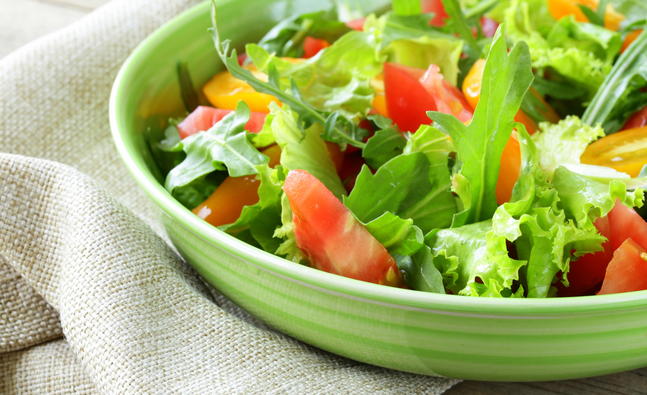How to eat better and healthier for less

- Shop locally
Try visiting your local farmers' market, as the lower overheads should mean lower prices. Using local stores and markets will also support your local community, and furthermore, you’ll be eating fresh, wholesome foods.
- Shop seasonally
Fresh fruits and vegetables are invariably cheaper in season than out of season – especially when foods have to be transported, or, worse still, imported to your local supermarket.
- Batch cook – from scratch
To save money on ingredients as well as the energy needed to cook your food, don't cook individual portions. Cook larger amounts and freeze the extra. To save energy and therefore money, put lids on saucepans when cooking, use a 'hot-box', and re-heat food with a microwave rather than a hob or stove top.
- Avoid ready meals
Convenience food is unhealthy – high in salt, sugar and fat, and also expensive. You can make tastier, more nutritious versions of the same meals for a fraction of the price by buying the ingredients from your local farmers’ market.
- Cut out or cut down on meat
If you can, try to cut out or eat fewer 'meat-centred' meals a week. 'Meat-free Monday' is a good place to start. This will not only help with weight loss and improve your general health, but you will also be doing a massive service to your planet by helping to reduce your carbon footprint.
- Make a list
If you do shop at a supermarket, make a list and stick to it. Plan a few meals and only buy what you need. It's easy to buy extra items as the layout is designed to encourage you to spend as much as possible. If you can’t get by without packaged and processed foods, always choose ‘own/home brand’ goods for the best value.
- Avoid, or at least be cautious about, 'buy-one-get-one-free' and bulk offers
Buy-one-get-one-free deals are better value, but only if it’s something that you regularly use and need anyway.
http://www.wikihow.com/Eat-Well-for-Less
-
Good and bad salad ingredients for weight loss
-
Schedule 10 minutes daily for calorie burning
-
Make friends with your cravings
-
Dishing up the truth about fad diets
-
News Flash: Food Guilt Can Make You Weigh MORE
You just ate some cake. How does that make you feel: awful, or joyful?
-
TOP 20 TIPS AND EXERCISES ON HOW TO LOSE ARM FAT
Top 20 tips and exercises on how to lose arm fat How to get r
- DON'T MISS
- Nothing fishy about this
- Overeaters Anonymous can help you take control of your life
- Im So Proud of How Far Ive Come: How One Woman Lost 150 Pounds
- Reduce weight gain by serving healthy foods
- 6 Super-simple guaranteed weight-loss tips - youll LOVE #6!
- Weight-Loss Success Story: How One Woman Made Health a Priority and Lost Over 120 Pound
- Melissa Joan Hart Weight Loss
- How to make nutritious homemade health bars
- 8 Effective Benefits Of White Tea For Weight Loss
- 5 Surprising ways your pets can improve your health & help with weight loss!




